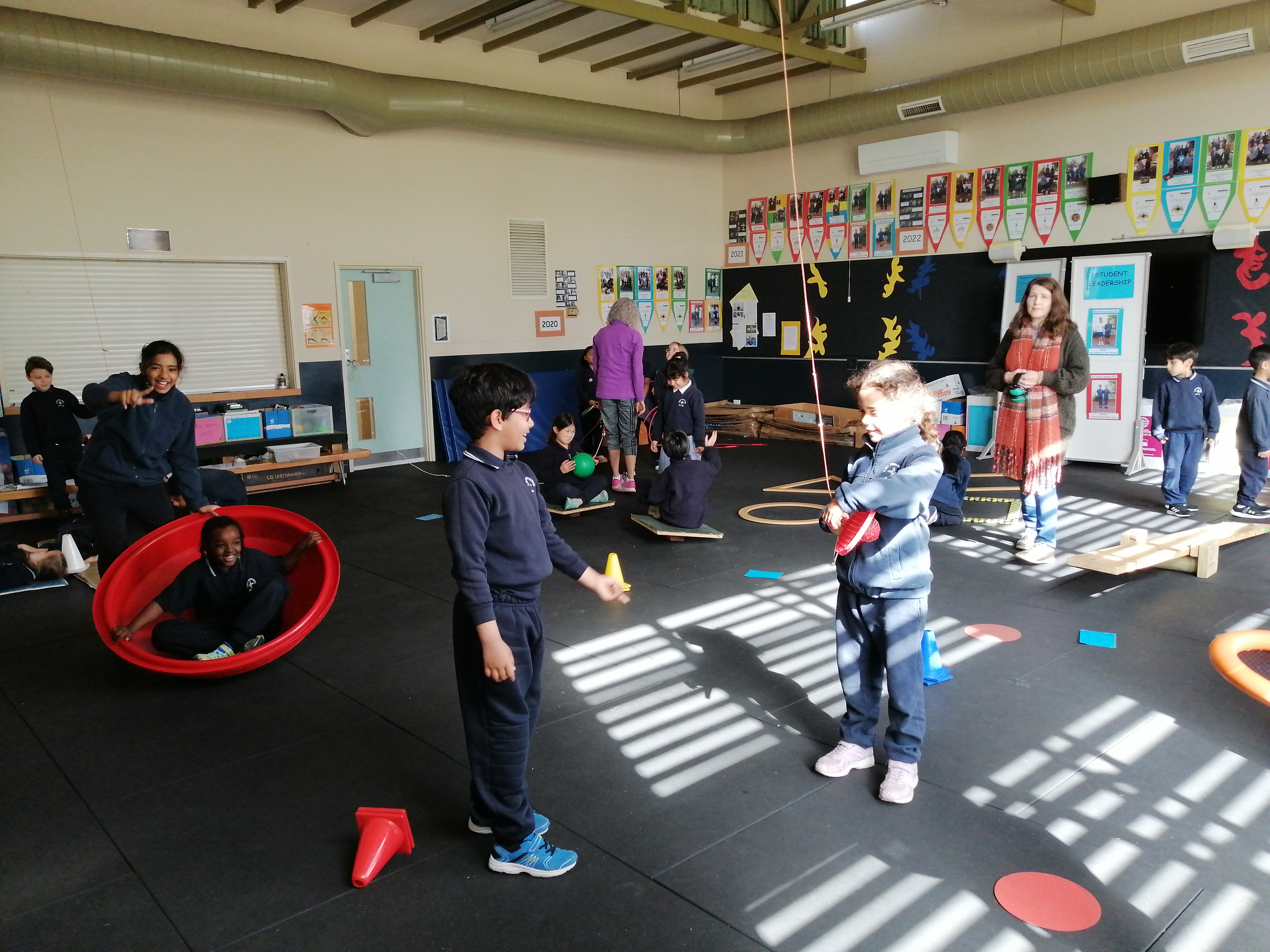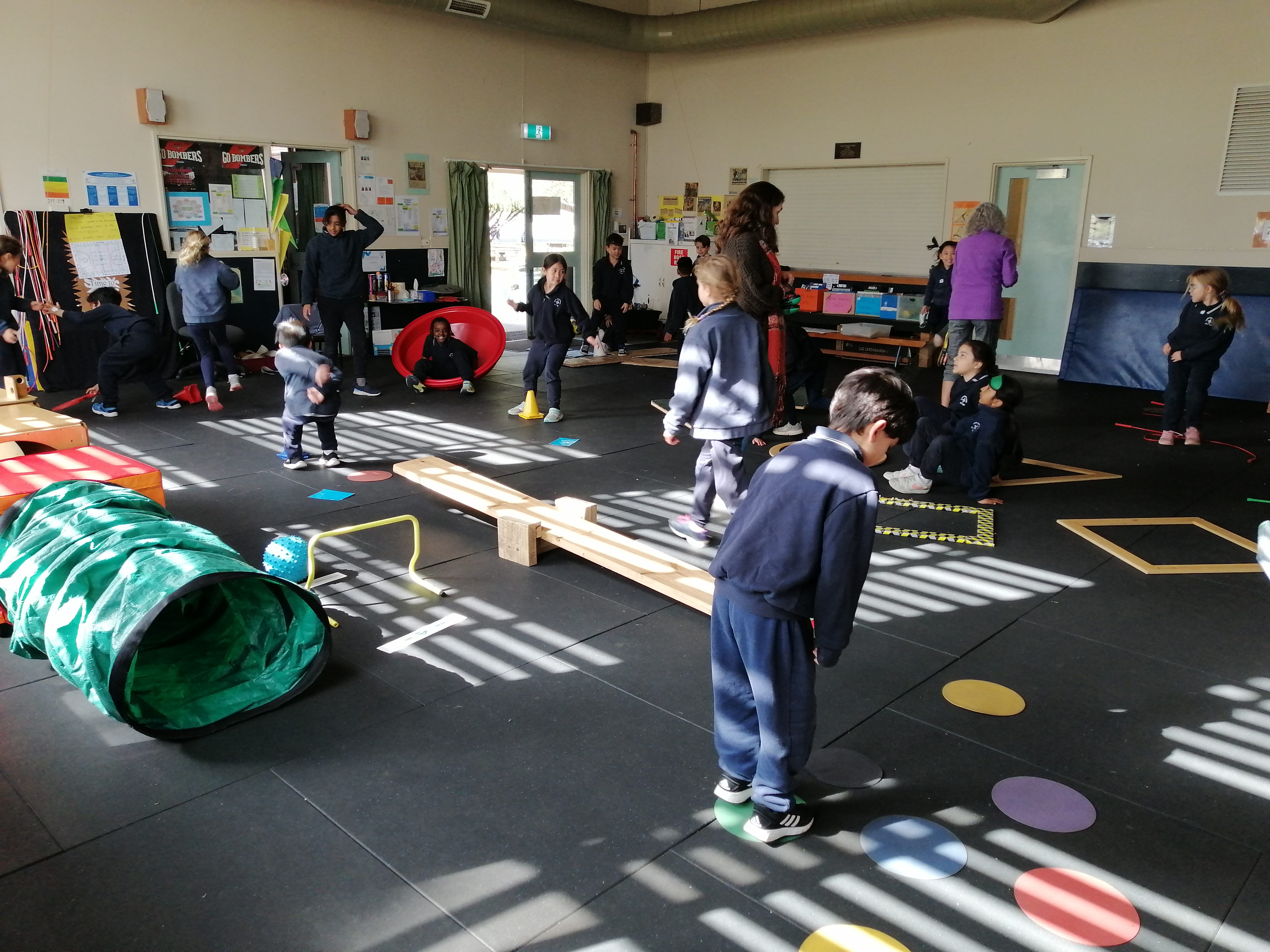Physical Education
Albion PS provides a high quality Physical Education (PE) program for every child. It is designed to prepare students for a healthy and active lifestyle through the development of skills, knowledge, teamwork and positive attitudes. Our comprehensive program provides children with a wide range of physical and sporting experiences focusing on the sequential development of fundamental motor and loco-motor skills, gymnastics, dance, athletics, fitness and various team sports. Swimming and camping programs are also offered to all students to participate in.
The purpose of Physical Education at Albion PS:
- To develop student’s knowledge and skills to make informed decisions, plan strategies and implement and evaluate actions which promote physical activity, fitness, effective relationships, safety and health of individuals and groups.
- To develop and improve students fundamental motor-skills.
- To provide students with a balanced range of experiences related to their physical, emotional, intellectual and personal wellbeing.
- To promote positive attitudes towards a healthy lifestyle.
- To provide children with the opportunities to develop communication skills required for effective human relationships.
- To promote enjoyment and appreciation of sporting and physical activities.
All children at Albion Primary School participate in a one hour Physical Education class each week which is provided by a specialist PE teacher. To implement the PE program, we have access to excellent facilities including a covered outdoor learning area, a multi-purpose room, oval with AFL goals and portable soccer goals, a synthetic 4 lane running track, long jump pit, a tee-ball diamond, a basketball, netball and volleyball court, bat tennis courts and many painted hopscotches, snakes, shapes and footprints to move on. We also have a range of equipment that ensures a variety of exciting new experiences each session.
The children are challenged in all their PE activities to work co-operatively, follow simple instructions and rules and to use equipment and space safely.
Senior students are involved in inter-school sports in terms one and two and this includes training and competing. During terms two and three senior students participate in cross country and athletics training which leads to a cross country and athletics carnivals. From these carnivals students can gain selection into the school cross country and athletics teams to participate in inter-school sporting carnivals. Senior students are involved in an intra-school Smash Tennis competition during term four. Throughout the year senior students can elect to participate in the house lunchtime sporting competitions. Sports such as soccer, tee-ball, basketball, netball, newcomb, dodgeball, bat tennis and skipping have been offered over the years to senior students. Students can also borrow equipment from sport tubs at recess and lunchtimes.
Sporting clinics are also offered to students by outside organisations. Specialist skills are generally taught in a specific sport. Senior students through their leadership program also offer sporting clinics to the younger students at lunchtimes throughout the year.
Through participation in school camps, outdoor education, swimming, inter and intra school sports, athletics and cross country carnivals and a specialist PE program, students are given an opportunity to shine in this major curriculum area. Entry into district, regional and state events ensure all children have the opportunity to participate at a high level.
Perceptual Motor Program
In addition to the weekly PE class, the school also runs a Perceptual Motor Program (PMP) for our prep students and sometimes the year 1 and 2 students.
Students are involved in a Perceptual Motor Program for 30 minutes per week. Three or four middle primary students help each week to assist the specialist PE teacher and classroom teacher.
A Perceptual Motor Program, or PMP as it is commonly known, is a program of movement activity. It concentrates heavily on the development of perceptions and language through planned activities using the PMP model.
Safety is paramount in the PMP sessions. We cannot justify the educational outcomes of PMP if children should be hurt therefore a major focus of each session is safe behaviour. Because movement is an essential part of the program, children will be running, climbing, rolling, swinging, balancing, sliding etc. and once the movement pattern is started the child may not be in a position to stop.
Language is a vital part of the program. Children learn the language of what they are doing because someone discusses with them what they are doing. They also learn how to do something by talking to them about the task and what the outcomes of the activity are to be and then they do the task.
The technique is most important. It is imperative for safety and for the outcome of the activity that it is completed correctly. This is the role of the PE teacher, to pre-teach the technique in PE classes and oversee students during their PMP session along with their class teacher and the student helpers selected from years 3 and 4.
Each PMP session has 5 stations set up, with each station having a focus of a basic movement pattern (i.e. locomotion, balance, eye/hand or eye/foot co-ordination, fitness or eye tracking). Children spend approximately 5 minutes at each station, with each child participating in all 5 stations during the 25 minute session. Each week a new station is added and remains in the program for four sessions. On the last session of the rotation, students are assessed on the major skill within this station.
© Copyright Albion Primary School



